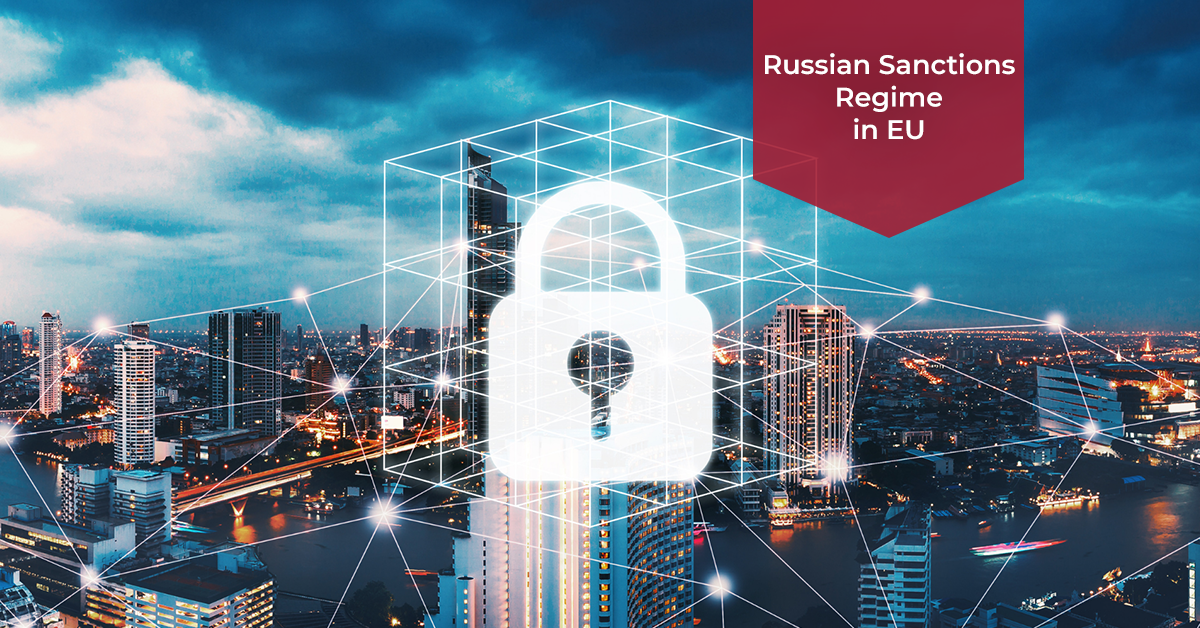
Russian Sanctions Regime in EU
What Measures has the EU Taken Against Russia in the last decade?
Since 2014, the EU has progressively placed sanctions on Russia in reaction to the unlawful annexation of Crimea.
In March 2015, EU leaders resolved to tie the current economic sanctions system to full implementation of the Minsk accords. Because Russia has never completely followed the accords, the EU has gradually increased the sanctions.
Which sanctions are imposed against Russia due to Ukraine/Russian War?
- First Package of Sanctions against Russia
The Council decided on the first set of steps on February 23, 2022, in response to Russia’s decision to recognize the independence of the non-government-held parts of the Donetsk and Luhansk oblasts. This includes the following:
- Penalties against 351 Russian State Duma members who voted in favor of the recognition
- Sanctions were also imposed on an additional 27 persons and companies.
- Economic limitations apply to non-government-held parts of the Donetsk and Luhansk oblasts.
- Russian state and government access to the EU’s capital and financial markets and services is restricted.
Second Package of Sanctions against Russia
In reaction to the Russian Federation’s military aggression against Ukraine, the EU resolved to freeze the assets of Russia’s president, Vladimir Putin, and its foreign affairs minister, Sergey Lavrov, on February 25, 2022.
Furthermore, the EU slapped sanctions on members of the Russian Federation’s National Security Council and the remaining members of the Russian State Duma who backed Russia’s recognition of the self-proclaimed republics of Donetsk and Luhansk.
Third Package of Sanctions against Russia
On February 28, the EU issued an airspace restriction on all Russian air carriers, as well as a prohibition on any transactions with the Russian Central Bank. It also imposed further sanctions on 26 more persons and one company. The EU resolved on March 2, 2022, to:
- Russian state-owned media outlets Sputnik and Russia Today have suspended their broadcasting activity in the EU.
- Seven Russian banks will be banned from using SWIFT.
- EU imposed penalties on Belarus in reaction to its participation in Russia’s armed invasion.
Fourth Package of Sanctions against Russia
In reaction to Russia’s military actions against Ukraine, the EU decided to apply the fourth package of economic and individual sanctions on March 15, 2022. The new measures include a prohibition on:
- all deals involving certain state-owned companies
- providing credit rating services to any Russian individual or business
- new investments in Russia’s energy industry
The Council increased the list of individuals associated to Russia’s defense and industrial base who face harsher export restrictions on dual-use items, commodities, and technologies that might contribute to Russia’s technical advancement in the defense and security sectors. The EU also instituted:
- Trade restrictions apply to iron, steel, and luxury products.
- Sanctions were imposed on an additional 15 people and 9 businesses.
How EU is supporting Ukraine civilians from the Russian invasion?
The Council approved a legislative proposal on Cohesion’s Action for Refugees in Europe on March 16, 2022. The plan will enable the rapid distribution of cohesion policy financing and will assist EU nations and regions in providing emergency assistance to those escaping Russia’s armed actions.
Member states will also be able to spend €10 billion from the Recovery Assistance for Cohesion and the Territories of Europe (REACT-EU), one of the major post-pandemic EU public investment programs.
On the same day, the Council approved a request to release €420 million from the home affairs budget.
